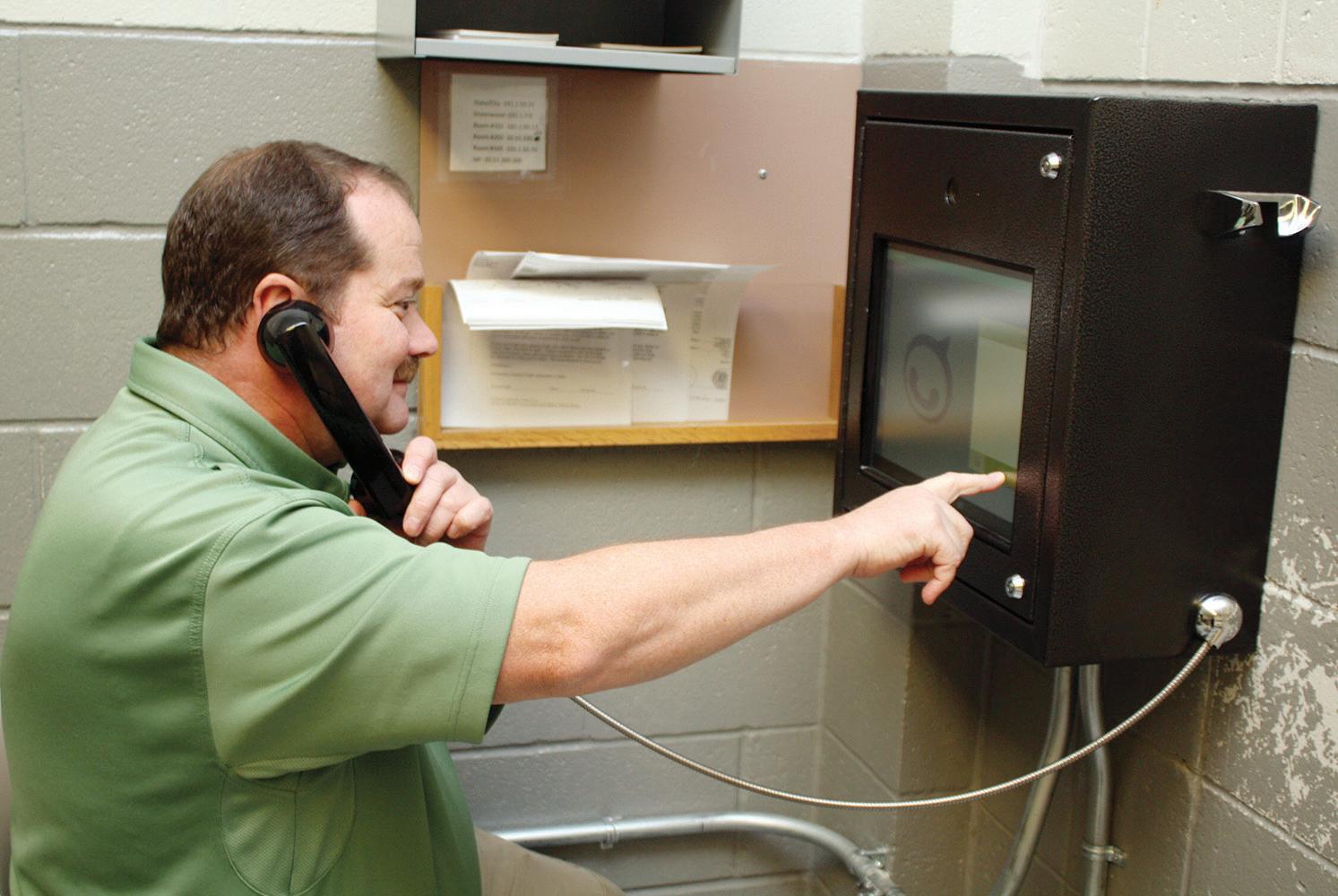
3 minute read
Justice Bridge saving jails money, reducing liability
AAC FEATURE
Justice Bridge saving jails money, reducing liability
Story and Photo by Holland Doran AAC Communications Coordinator
Transporting an inmate from a holding cell or prison to a courtroom for an arraignment hearing is a costly and risky endeavor for counties. It’s a risk the Association of Arkansas Counties Risk Management Fund (AACRMF) is working to help eliminate with Justice Bridge, an innovative video arraignment system.
Justice Bridge is a simple video/audio communication bridge for law enforcement, state prisons and the judiciary. The program allows visits and hearings to be conducted via teleconference, connecting a judge in a courtroom to an inmate who is potentially four to six hours away.
The program is offered free to all AACRMF member counties. As of May, 54 counties have joined AACRMF. Within those counties, 14 county jails and 16 prisons are using Justice Bridge, with additional installations ongoing.
The system includes a high-tech jail phone with a 15inch color screen, which is placed in a secure box inside the jail’s holding cell. The phone connects to a videophone in the courtroom. This allows for the inmate, judge and others in the courtroom to see and hear each other.
“We are really excited to offer Justice Bridge to our RMF members,” AACRMF Manager Chris Villines said. “The upside to saving member counties money is tremendous.”
Baxter County Sheriff John Montgomery spearheaded the initiative to find a safer and more efficient method of transporting inmates to hearings. He took the idea to AACRMF, which teamed up with Keystone Data Technologies to develop Justice Bridge, an encrypted, oneof-a-kind video arraignment system customized for counties.
Montgomery explained that for a deputy to drive an inmate four to six hours across the state for a 10-minute hearing is inefficient and potentially dangerous.
“If you look at the sheer number of inmates having to be transported back and forth across the state, [there is a lot of] potential for accidents, escapes and for someone to get hurt,” Montgomery said. “To be able to reduce that exposure is just huge on top of the cost savings.”
Out of 31 cases, Sebastian County has saved $6,335.70 in salary, 490 man hours and approximately 34,720 miles, according to Sebastian County Jail Administrator William Dumas.
Sebastian County is on course to save even more money, said Sheriff Bill Hollenbeck.
“We’re potentially talking about hundreds of thousands of dollars in savings over time to wear and tear on the vehicles, fuel, potential liability issues that could happen with all these transports that we do,” Hollenbeck said.
Twelfth Judicial Circuit Judge Shannon Blatt, who has been using Justice Bridge in her courtroom for almost a year, says the system is “very efficient.”
“With [Justice Bridge], I can pick up the phone, make a phone call, someone’s there. The bailiff doesn’t have to leave, the person needing to participate by phone is in court, and they get to have a meaningful hearing,” she said. In addition to Justice Bridge, AACRMF member counties can benefit from a host of top-of-the-line services that have been selected based on the pressing needs of counties. These services include the Guardian RFID inmate monitoring system; codification of substantive county ordinances; CDL drug and alcohol testing through National Medtest Inc.; and pre-disaster inspections through Metro Disaster Specialists.
Sgt. Eddie Smith with the Sebastian County Sheriff’s Office demonstrates how an inmate would use a Justice Bridge jail phone. The phone is housed in a secure box, and the phone connects to a videophone in the courtroom.
To learn how to become an AACRMF member, contact Debbie Norman at 501-375-8247 or dnorman@aacrms.com. For more information on the Justice Bridge, contact Mark Harrell at 501372-7550 or mharrell@arcounties.org.










